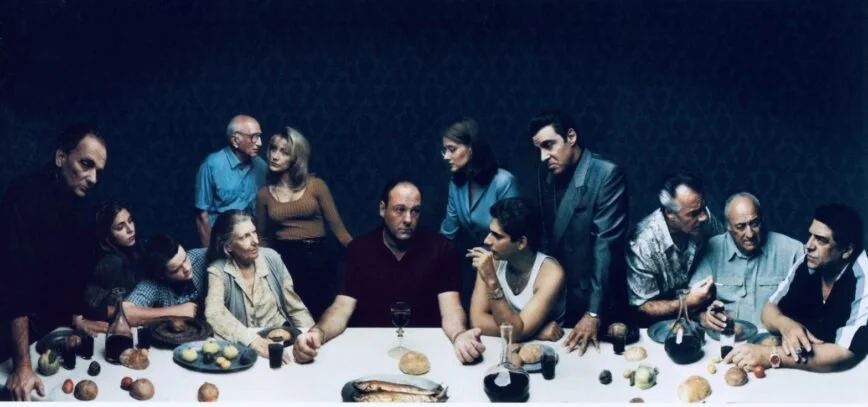How The Sopranos changed how we view Male Mental Health
Writes Beth DoyleRenowned writer David Chase initially conceived The Sopranos as a feature film about “a mobster in therapy having problems with his mother”. After some deliberation, Chase decided to turn it into a television series drawing heavily from his personal life, specifically his relationship with his mother and his experience growing up in New Jersey, a state with a substantial level of organised crime. The influence of these aspects of Chase’s life creates the overarching theme of the series; the effect that family and work have on an individual’s mental health.The Sopranos is probably most famous for its use of dream sequences; these are used as a tool to portray the inner workings of the protagonist’s mind. Tony Soprano, the protagonist of the show, is a mob boss who suffers secretly with anxiety and depression because of both the abuse he suffered as a child and the pressures of balancing his home and work life. The show is presented to us as a kind of idyllic family sitcom with the ironic twist being that everything that brings the family together - their home, possessions and education - are all funded by the New Jersey Mafia. This juxtaposition between the perfect suburban lifestyle that the Soprano children live compared to the gritty lawless life their father and his “colleagues” live highlights that struggle of work/life balance which eventually drives Tony to seek psychiatric help.The show also portrays the way in which toxic masculinity affects men's mental health. According to a Eurostat report done in 2015, about one in ten Irish men report having a depressive disorder; and according to The Journal, there were almost four hundred reported suicides in Ireland in 2018 in which eight out of every ten were male. Studies have shown that a common cause of depression in young males is the feeling of failure or an inability to meet expectations. These expectations are often stereotypical masculine ideals like the need to provide, to get a good job, and make lots of money. This is a common theme in the Sopranos. Tony struggles with the pressure of providing both for his biological family and what is referred to as “The Family”, meaning the wives and children of his fellow gang members. When a member dies or goes to jail, it is the responsibility of the head of The Family to provide for them and theirs. It shows how men are put under savage pressure to go out and make money to provide for and protect the ones they love.Tony suffers with panic attacks throughout the series. Oftentimes, these are triggered by his overbearing mother whom he can never seem to impress, but as the series progresses (without giving too much away) it becomes apparent that those oppressive characteristics his mother expressed were carried on to him either genetically or through conditioning, so despite the fact that Tony seeks help for his abuse and tries to leave it behind him, the cycle carries on to his children vicariously. The series also deals with this idea of genetics as a means of developing mental disorders. Did Tony develop depression because his mother was abusive, or did she pass it on to him? And will he, in turn, pass it on to his children? “When you blame your genes, you’re really blaming yourself” (Jennifer Melfi, The Sopranos) The show raises questions regarding nature versus nurture and asks if any one person or trait is responsible for someone’s psyche.“Depression is rage turned inward” according to Tony’s psychiatrist, Dr Melfi. She offers a voice of reason in the show – the only main character who is totally removed from the crime syndicate – Melfi allows Tony to open up and audibly share his feelings with the audience. Their therapy sessions are intense and dialogue-heavy, offering stark contrast to other scenes ofmindless violence. The very man we see several minutes earlier murdering his best friend is sitting in a psychiatrist's office fighting off an impending panic attack. The show highlights the universality of mental health; it’s something that everyone struggles with, even alpha-male mob bosses. It shows us that no matter who we are or what we have done, we deserve to be heard and suffering is never warranted. The Sopranos normalised male mental health issues before public discourse acknowledged their existence. In a time when men can only strive to be the strong silent type or the bumbling comic relief, Chase presents his audience with a third option: the emotionally attentive modern man.


